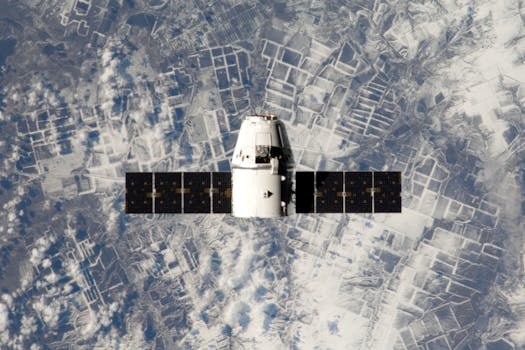The Future of Satellites: Revolutionizing Global Connectivity
The future of satellites is poised to revolutionize global connectivity, enabling faster and more reliable communication networks. With advancements in space technology, satellites are becoming increasingly important for various industries, including telecommunications, navigation, and remote sensing.

The Future of Satellites: Revolutionizing Global Connectivity
The future of satellites is poised to revolutionize global connectivity, enabling faster and more reliable communication networks. With advancements in space technology, satellites are becoming increasingly important for various industries, including telecommunications, navigation, and remote sensing. In this article, we will explore the current state of satellite technology, its applications, and the future developments that are expected to shape the industry.
Satellites have been a crucial part of modern telecommunications, providing services such as television broadcasting, internet connectivity, and mobile communications. However, the industry is experiencing a significant shift with the emergence of new technologies and innovations. One of the key trends is the development of smaller, more affordable satellites, known as smallsats or cubesats. These satellites are designed to be launched in large numbers, providing a more efficient and cost-effective way to deploy satellite constellations.
Current State of Satellite Technology
The current state of satellite technology is characterized by a high level of innovation and investment. Private companies such as SpaceX, OneWeb, and Amazon are launching new satellite constellations, while governments are also investing in satellite programs. The development of reusable launch vehicles has significantly reduced the cost of accessing space, making it more viable for companies to launch satellites. Additionally, advancements in materials and manufacturing have enabled the production of smaller, more efficient satellites.
Satellite technology has also improved significantly, with the development of new propulsion systems, power sources, and communication equipment. For example, electric propulsion systems are becoming increasingly popular, as they provide a more efficient and longer-lasting alternative to traditional chemical propulsion systems. Moreover, the use of solar panels and advanced battery technologies has enabled satellites to operate for longer periods, reducing the need for maintenance and replacement.
Applications of Satellites
Satellites have a wide range of applications, including telecommunications, navigation, remote sensing, and weather forecasting. Telecommunications satellites provide internet connectivity, mobile communications, and television broadcasting services. Navigation satellites, such as GPS, enable accurate positioning and timing, which is critical for various industries, including aviation, maritime, and transportation.
Remote sensing satellites are used to monitor the Earth’s surface, providing valuable data on climate change, natural disasters, and environmental monitoring. Weather forecasting satellites help predict weather patterns, enabling authorities to issue timely warnings and take necessary precautions. Additionally, satellites are used for scientific research, including the study of the Earth’s magnetic field, the sun, and the universe.
Future Developments in Satellite Technology
The future of satellite technology is exciting, with several developments expected to shape the industry. One of the key trends is the emergence of satellite constellations, which will provide global coverage and enable faster and more reliable communication networks. The development of 5G networks is also expected to drive the demand for satellite services, as it will require a large number of satellites to provide connectivity to remote and underserved areas.
Another trend is the use of artificial intelligence and machine learning in satellite technology. AI-powered satellites will be able to analyze large amounts of data, providing valuable insights and enabling real-time decision-making. Moreover, the use of blockchain technology is expected to enhance the security and transparency of satellite communications, enabling secure data transmission and storage.
Conclusion
In conclusion, the future of satellites is poised to revolutionize global connectivity, enabling faster and more reliable communication networks. With advancements in space technology, satellites are becoming increasingly important for various industries, including telecommunications, navigation, and remote sensing. As the industry continues to evolve, we can expect to see new innovations and developments that will shape the future of satellite technology.




